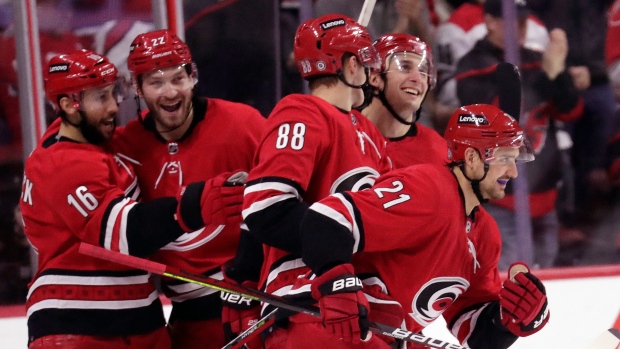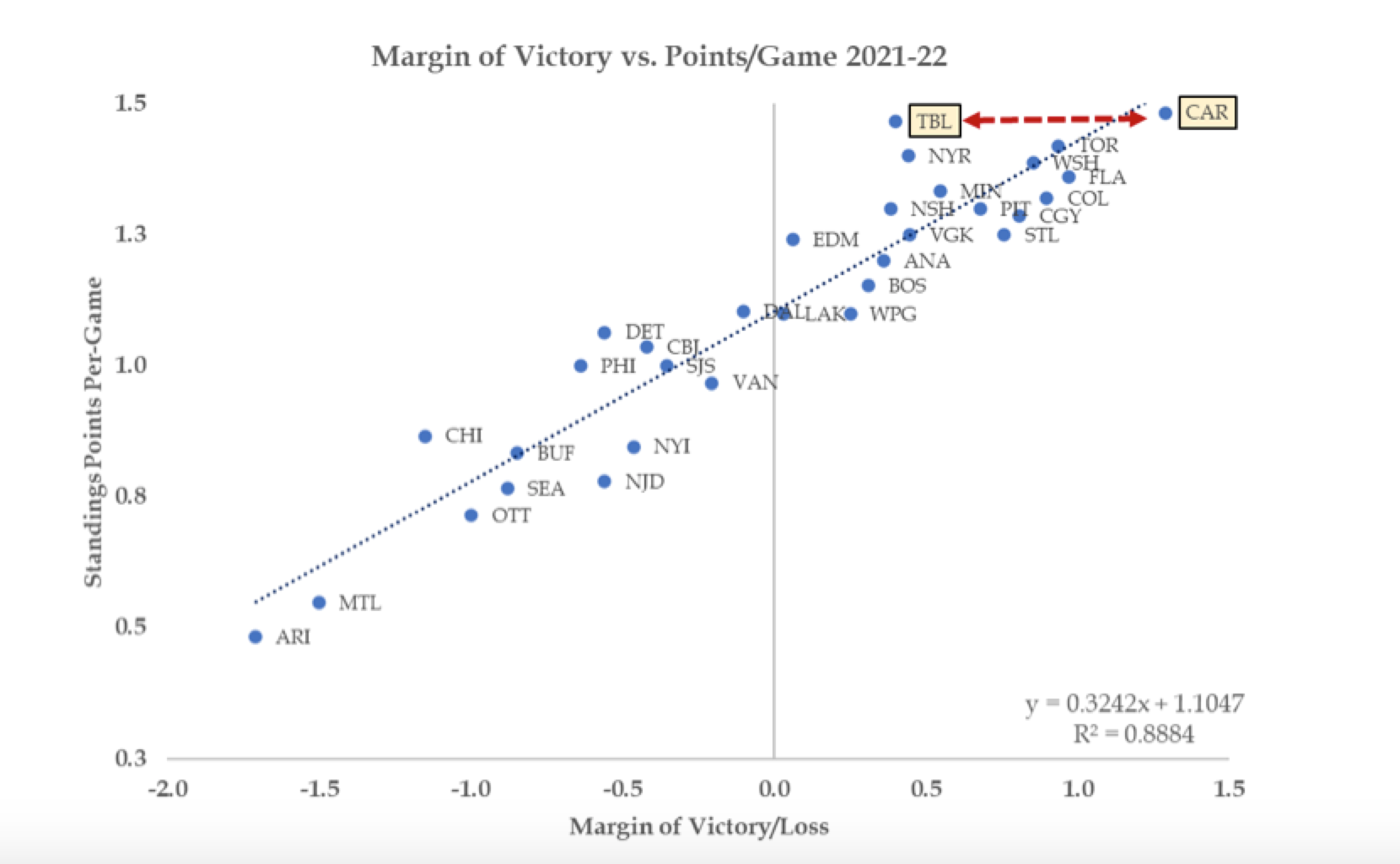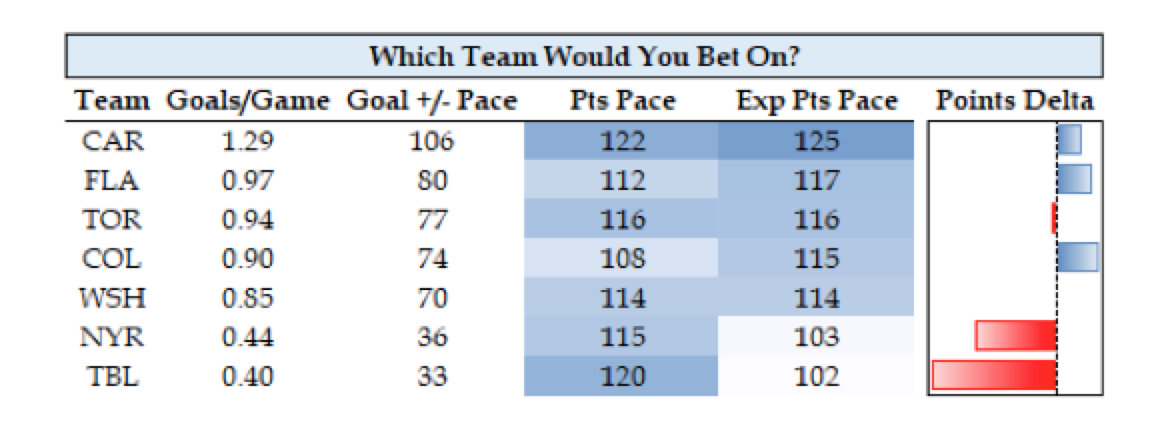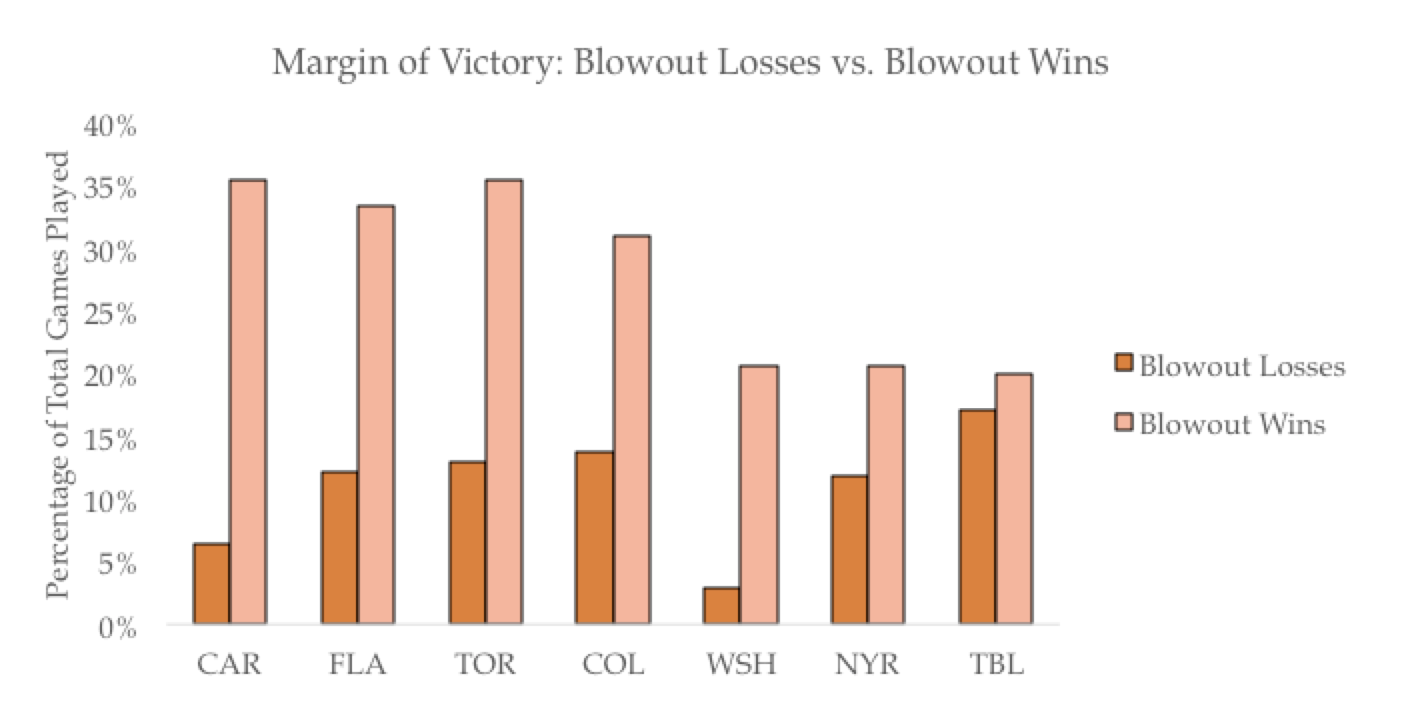Jan 5, 2022
Hurricanes look like the NHL’s best squad
There are a number of worthy contenders atop the league but Carolina separates itself from the pack via margin of victory, Travis Yost writes.
By Travis Yost

If you asked around the league for a consensus opinion on the best team in the National Hockey League, you would likely get a grab bag of answers.
I suspect the most popular one would be the two-time defending champion Tampa Bay Lightning (22-8-5). I expect you would see some love shown to the Toronto Maple Leafs (21-8-2), Florida Panthers (22-7-4) and Carolina Hurricanes (23-7-1) as well. The Colorado Avalanche (19-8-2) would draw attention too, considering their recent track record of success.
Wherever you land, there’s clearly a handful of teams that have played their way into elite status, and they have a dominant win-loss record to show for it. But this is where margin of victory, or goal differentials, can tell us a lot more about a team. It’s not only a better capture of performance to date, but also more predictive of future outcomes.
Intuitively it makes sense. Imagine playing the league’s best team and you win by four goals. Imagine that same game and you hold on for a one-goal victory late. The outcome is the same, but the level of dominance is quite different. Play the first game many times over, and you likely win every time. Play the second game many times over, and you are going to lose more frequently.
The reverse is also true: close losses are much more encouraging than large losses because teams are a bounce or two away from flipping an entire game’s outcome.
Margin of victory helps us differentiate between wins, and in the earlier parts of a regular season, becomes a bit of a north star.
Bringing this back to the opening question: I think the answer right now is the Carolina Hurricanes.
I have plenty of time for contextual arguments about teams that have been impacted by COVID-19 breakouts or cluster injuries, and there are a handful of candidates fitting that description. But instead of looking at wins and losses, let’s focus on the goal differentials driving those totals:

I wanted to isolate on the Lightning and Hurricanes because their point pace is identical. If the season ends as it has progressed to date, the Lightning will finish with 120 points, the Hurricanes 121 points.
However, these two teams do not look to be of the same quality – not right now, anyway. If we asked about the goal differential pace for the respective teams, the Lightning would finish +32 goals better than their opponents on the season. The Hurricanes? A staggering +106 goals better than their opponents.
So, what’s going on here? It really boils down to the singular game data. I grabbed the Hurricanes and Lightning, along with a few other notable contenders for the throne, to show how these wins and losses have materialized this season. Let’s look at the top contenders:

The Hurricanes have been so good through the first three months of the season their current point pace is underwhelming relative to how well they’ve played. A team with a similar margin of victory at season’s end would expect to be three points better in the standings versus where they are today. The record has been flattering to teams like the Lightning and, to a lesser extent, the Rangers. These are both very good teams, but their margin of victory is a third of Carolina’s.
You can hone in on this quickly isolating for blowouts – games where the run of play was one-sided, and the games hardly in dispute. A team like the Lightning, while still very good, has nearly as many three-plus goal losses as they do victories. Meanwhile, 35 per cent of the Hurricanes’ victories qualify as a blowout, and they only have two bad losses on the year: a 5-2 loss to the Panthers, and a 4-1 loss to the Dallas Stars.

In short, Carolina looks the best team in the league. While Tampa Bay may be one of the teams vying with them for first overall in the Eastern Conference (and league-wide), it’s quite likely the Hurricanes will feel more competition from teams like the Panthers and Maple Leafs, who should be more likely to hold onto their winning ways with the way they are beating opponents this season.
Data via Natural Stat Trick, NHL.com, Evolving Hockey

